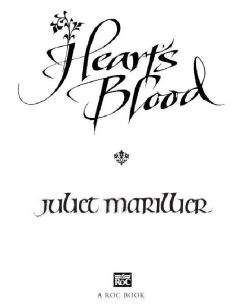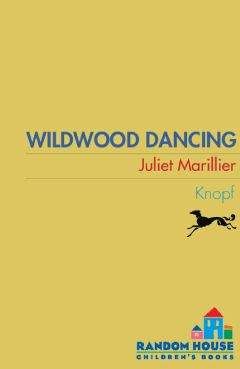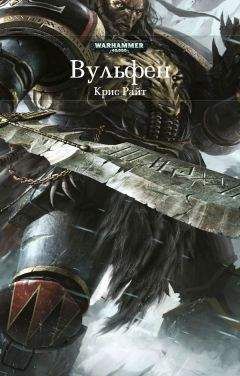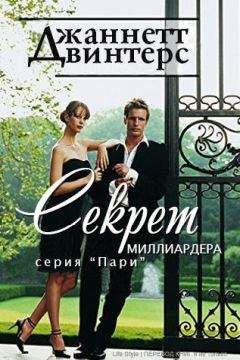Cybele's Secret - Juliet Marillier - Cybeles Secret
It seemed I had answered the question to her satisfaction, and now I was supposed to take some kind of prize. I had only to reach an arm’s length to pick up any one of five items, each worth a king’s ransom. My eyes fell on a lovely manuscript not far from my foot, its borders embellished in gold leaf, with little images of minarets against a night sky painted in rich deep blue. Beside it was a tiny bound book, open to show delicate calligraphy on creamy vellum. Either would make a miraculous start for my business, for each was an item nobody from here to Transylvania would be able to match.
“Oh, Paula,” said Irene. “Such riches. Such a beginning for your collection. How can you possibly choose?”
I stood gazing at the lovely things, the precious and glittering assortment of treasures, and I knew I didn’t want any of them. I just wanted to see Duarte achieve his mission and the three of us get safely out and home again. I wanted to hug Father and tell him how sorry I was. Most of all, I wanted my sisters.
“Choose, Paula,” the old woman said.
The little red bird flew from my shoulder to the heap, alighting with precision on an item tucked behind a grand silver jug. A hint of bright color told me what it was even as I reached across to retrieve it. Tati’s embroidery was finished now. The crumpled rag unfolded, its creases disappearing before my eyes, and there were five girls dancing proudly across the linen hand in hand, their faces wreathed in smiles. Tati, Jena, Iulia, Paula, Stela. We were all there, together, strong and alive. No more tears, Paula, I ordered myself. “May I have this?” I asked.
Irene sucked in her breath. It seemed an odd choice, I suppose, with such riches on offer.
“It is yours,” said the crone, and a rare smile curved her withered lips. “And I will give you another. As you are a scholar of some note, I am certain you would appreciate an additional riddle.”
I refrained from telling her that right now I was incapable of dealing with a riddle for three-year-olds, let alone anything more taxing.
“It is not to solve now,” the old woman said, apparently reading my mind. “Take it away with you, consider its meaning, find the solution in good time. But don’t wait too long. It goes thus:
Water and stone
Flesh and bone
Night and morn
Rose and thorn
Tree and wind
Heart and mind.”
There was a silence. Nobody offered me a solution, and nothing immediately suggested itself to me. But then, she had told me to take time. “Thank you,” I said with mixed feelings. The trouble with being a scholar is that once someone sets you a puzzle, your mind starts working away at it even if you are too tired to get anywhere.
“You, young man”—the crone motioned to Stoyan—“choose next. Three rewards you have earned, one for the courage that saw you take an arrow for a man who was not yet your friend; one for the steadfastness that held Paula safe and strong as she endured her trials; and one for the openness of your mind to this world beyond the human, a world in which trust and cooperation take many forms. Make your choice: One item from the pile is yours.”
He was far quicker than I. “If you permit,” he said to the old woman, and reached out to take a diadem of gold. It was an opulent piece, thickly crusted with precious stones: an adornment fit for the Sultan himself. I was surprised by his choice and a little disappointed. After all this, after what we had been through together, my friend would measure his reward in riches? A moment later, I realized an item like this would allow him to stop earning his keep as a guard and get on with the search for Taidjut.
“I understand your choice, Stoyan,” the old woman told him. “This is the first of your rewards and the only one fully in my power to give you. Although you have earned all three, the long-sought second and the deeply desired third do not depend on the decisions of the Other Kingdom but on those of your own kind. You are a good man. I hope both will come in time.”
I met Stoyan’s eye as he slipped the priceless ornament into his sash, then looked away, full of shame that I had doubted his motives even for a moment. And what had the crone meant about an arrow? He’d said his wound was only a scratch.
The crone did not ask Stoyan what he had learned but turned her attention to our companion. “Duarte da Costa Aguiar,” she said. “You have come farthest of all to make your choice. Step forward now and do so, bold adventurer.” Her tone was warm.
Duarte stood there a long time with the cloth-wrapped artifact in his hands. He was scanning the hoard, searching for something, not necessarily the most valuable item, or the most unusual, or the rarest. It became clear to me that he was looking for one particular object amidst a hundred, a thousand individual treasures. We stood waiting, and Duarte walked around the pile of precious things, hunting high and low. Irene tapped her foot. Beside her, Murat waited quietly.
I think both Stoyan and I realized at the same time what it was Duarte was looking for, and we joined him in the hunt. It wasn’t easy. Gold and silver dazzled the eyes; parchment and vellum, unrolled and tumbling down, screened what lay behind. Vessels spilled forth small rivers of rubies and amethysts. Necklaces, bracelets, and decorated swords vied for attention. But then, perhaps we were meant to find it.
“Duarte,” I said, suddenly still. “There.” I pointed to a low corner where something protruded slightly from beneath an ornate sword hilt.
Duarte smiled. He knelt and the crone moved closer. I held my breath. He cleared away the sword and a bronze platter the size of a small table, and there it was, a modest piece of broken pottery, like the lower half of a bulbous gourd in shape, its upper edge snapped off cleanly. Amongst the thousand rare and expensive items in the hoard, this was a thing of unpretentious clay fashioned with modest craft, unadorned save for a scrawl of cryptic writing curling across it.
Duarte placed the small bundle he was carrying beside the broken fragment. He untied the cloth and drew out Cybele’s Gift. In the cavern, there was utter silence. On my shoulders, the three attendant creatures had become preternaturally still.
“I have come not to take, but to give,” the pirate said, glancing up at the old woman. He lifted Cybele’s Gift in hands that were remarkably steady and placed the top part of the little statue on the base.
Something changed. I could not say what it was, for there was no sound, no dazzling light, no sudden cold or warmth. Nobody spoke a word. But I sensed a profound difference in the cavern, as if a drought had broken or a pestilence had been cured. Before our eyes, the two parts of Cybele knitted together, joining up as smoothly as if the artifact had never been broken.
Duarte rose to his feet, leaving the statue where it was. As he moved, the creatures moved as well, bee and bird soaring upward, small gargoyle jumping down from my shoulder to scamper away. The hound padded off more slowly, pausing once or twice to look back at Stoyan, its heart in its eyes. The creatures that had accompanied Irene and Murat made their own departure, the cat stalking off without a backward glance.
“Cybele thanks you,” the crone said softly. “You have been dogged in your task, Duarte. You have never taken your eyes from the horizon. What have you learned?”
He grinned disarmingly. Solemn as the moment was, he was still himself. “I don’t know where to begin,” he said, glancing at me. “Trust would be the first lesson. I’ve learned the hard way not to discount tales of the remarkable and uncanny. And I’ve been forced to acknowledge that I am not, in fact, entirely devoid of human weakness. Not that I plan to make that widely known. It might get in the way of business.”
“Good,” said the old woman. “The three of you have acquitted yourselves as we hoped you would: bravely, wisely, with love and balance. It was ever decreed thus, but the fulfillment of the quest has been long in coming.”
“Have we permission to pass on through the mountain?” Duarte asked her. “My intention was to take the statue to the village on the other side, a place where, I was told, Cybele is still revered and loved. That quest was laid on me by a friend long ago. Is it right to carry it out of this cavern?”
“Perhaps,” the crone said, turning her gaze on the others, the ones who had not earned the right to be here. “We are not yet finished. Murat, come forward.”
She was actually going to do it. She was going to grant them the same privileges as we’d been given.
“But—” I began, and wilted at the look in her eye. Whatever was to unfold, I could see it would happen whether we liked it or not. I clutched Stoyan’s hand and prayed that this would come out right, that justice and goodness would prevail.
Murat stepped up beside us. He bowed his head respectfully to the crone and said, “I serve the lady of Volos. Her reward is my reward.”
The old woman fixed him with her eyes. The eunuch met them with perfect calm, and I watched him, thinking of what he had done at the swinging bridge and before. Today he had rendered seven children fatherless; he had forced Duarte to drop his friend into the void. If not for my desperate bluff, he would have killed Stoyan. What mad loyalty could inspire a man to act thus, with no regard for what was fair and right?
“Very well,” the old woman said. “Irene of Volos. You like lovely things. What will you choose?”
The chamber grew darker. On either side of me Duarte and Stoyan moved in closer. We had become vulnerable, all of us. There would be no bluffing our way to safety now.
The lovely line of Irene’s throat was exposed as she tilted back her head and laughed. The sound rang around the cavern. “You mean it,” she said to the old woman. “Anything. I may take away anything from this remarkable treasure trove.” Her brows lifted in mock astonishment.
“The rule is the same for all,” the crone said. “One item as reward. Then all will pass onward.”
“This is—” Duarte began, and this time it was I who hushed him.
“Let it go,” I muttered. “We can’t control this; we have to let it happen.” I had seen enough of the workings of the Other Kingdom to understand that human intervention could go only a certain distance. There were patterns here far larger and older than our minds could encompass. Wisdom, a deeper form of wisdom than any scholarship could unlock.
“Very astute of you, Paula,” said Irene in her most charming tone. “I knew I was right about you; I saw your potential from the first.” And, bending gracefully, she picked up Cybele’s Gift. She rose with it cradled in her arms. Her lips shaped a benevolent smile. Her eyes were alight with the triumph of her win. “You disappoint me, pirate,” she said to Duarte. “You have led me here, and now you have passed over your treasure as if, all the time, you did not really want it.”
“Want it?” Duarte’s face was a ghost’s, a hollow-eyed study in black and white. “I never sought to possess Cybele’s Gift. I wish only to repay a debt of honor.” His gaze went to Murat. “But, of course, this is a concept your mind cannot encompass. I have seen today that you do not know the value of a human life.”
It seemed Irene was not listening. She had one hand under the little statue, and the other was caressing the wild hair of the miniature goddess, whose hollow eyes gazed out at us from her broad earthenware face. “The artifact is mine,” the Greek woman said. “As head of the cult, I have the only legitimate claim to it. The statue will be safe with me, hidden within my home in our gathering place. Through possession of such a fabled item, my position as leader of Cybele’s rites will be absolute. It would be ludicrous to leave the artifact up in the mountains. That would result not only in the statue crumbling away because folk are too ignorant to preserve it properly but also in bitter disappointment when it’s proven to have no more mystical power than any other lump of clay. I imagine these villagers actually believe in Cybele. They’ll be pinning all their hopes on the conviction that this scrap of pottery can magically bestow instant peace and plenty. It’s a forlorn hope of extricating themselves from their destined lot on the earth, which, unfortunately, must be one of grinding poverty. Senhor Aguiar, your quest to take the statue there is sheer folly. Cybele’s Gift belongs to me and to my followers. Paula, now might be a good time to make your choice. Come back with Murat and me. Whatever impulsive reason you may have had for accompanying Senhor Aguiar on his journey, you can rely on me to provide an acceptable explanation for your father. When Master Teodor has come to terms with that, we’ll ask him if he will let you stay in Istanbul awhile and extend your knowledge of Turkish culture. I will initiate you personally.”
A shudder of sheer horror ran through me. “Never,” I said, meeting Irene’s eyes and seeing on her face an expression that truly scared me. “I’ll never betray my friends. You told me you value freedom for women, and of course I believe in that; it’s central to the way I live my life. But you are a poor example, Irene. You’re selfish to the core—all you want is to be admired, to be the center of your so-called cult, with your devotees clustering about you like bees around a flower. You call yourself a priestess, and yet you tell us quite openly that you don’t believe in the goddess you claim to represent. That’s immoral. It’s despicable. People have died because of this, good people. You may thrive on the foolish risks you take, but what about those other women? Your hunger for power could draw them and their families into terrible consequences. Look at what happened to Salem bin Afazi, and he wasn’t even part of the cult.”
“Salem made an error; he attracted the Mufti’s notice. I do not make errors.” Her voice was chill. “Have you more to say, Paula?”
“In one breath you tell us Cybele’s statue belongs to you, and in the next you express scorn for what she represents: the ancient wisdom of earth. You dismiss people’s faith just because they are poor and isolated. But these old gods are powerful. Perhaps they are sleeping now, waiting out a long time of change in the world, but that doesn’t mean they are only the imaginings of simple folk. You sicken me, Irene. I can’t believe I ever trusted you.”
“Well, well,” she said, eyes slitted, “there is indeed some passion in that scholarly breast. I’m disappointed, Paula. I had believed we might make something of you. You realize, of course, what an enormous difference your decision will make to your future?” She turned to Duarte. “Senhor, now that you have seen me here, it will unfortunately be necessary for me to ensure that you and your companions do not return to Istanbul to tell the tale. The Sheikh-ul-Islam and his cronies don’t care for the revival of pagan practices in their Muslim city. As for the possibility that such a group might be headed by a woman, I imagine that terrifies them. For the sake of my husband’s career, if not for myself, I must continue to keep this particular interest secret….”




